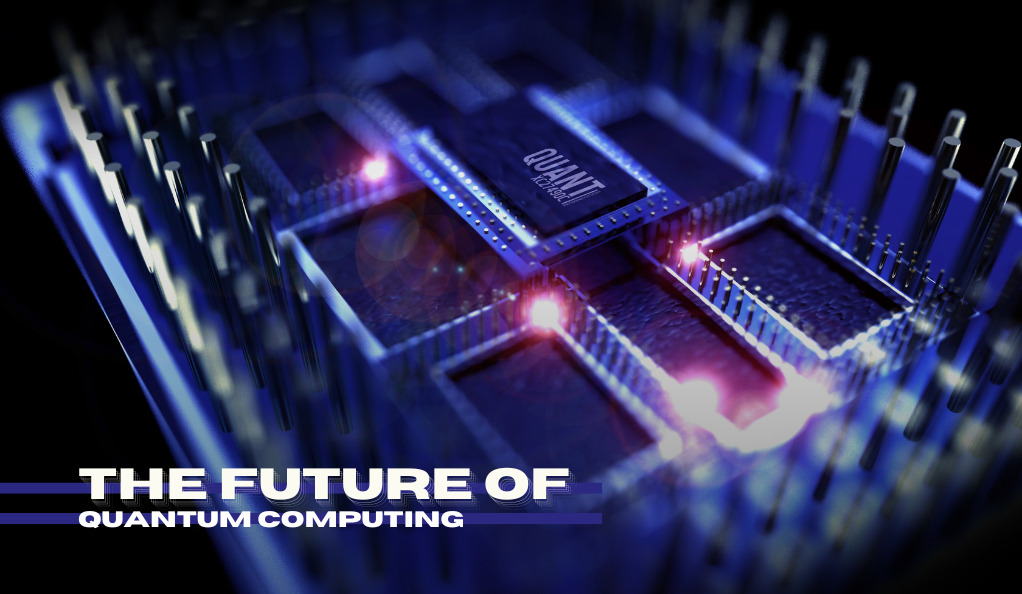As we stand on the precipice of a technological renaissance, the impending ramifications of quantum computing are poised to permeate various facets of our daily lives within the next five years. Understanding how these advancements may manifest is essential for individuals across diverse sectors. This exploration will dissect the multifarious influences of quantum computing on personal and professional realms, traversing through healthcare, cryptography, artificial intelligence, finance, and everyday technology.
Healthcare Innovation
In the coming five years, the healthcare sector is set to experience seismic shifts owing to quantum computing’s capability to process and analyze vast datasets with unparalleled efficiency. Quantum algorithms will facilitate the development of personalized medicine by accurately modeling complex biological systems, allowing practitioners to tailor treatments to the unique genetic profiles of patients. This transition from a one-size-fits-all approach to precision medicine could enhance the efficacy of interventions, ultimately leading to improved patient outcomes.
Additionally, the intricate nature of protein folding and drug interactions, once deemed computationally insurmountable, will become far more navigable. Quantum simulations will expedite the discovery of novel pharmaceuticals, significantly reducing the time and financial investment involved in bringing new drugs to market. Patients may soon benefit from groundbreaking therapies that were previously unimaginable, revolutionizing the treatment landscape for chronic and acute conditions alike.
Enhanced Cybersecurity Measures
As information becomes an increasingly valuable commodity, the security of sensitive data is paramount. Quantum computing holds the potential to upend traditional cryptographic methods, leading to both vulnerabilities and opportunities in the realm of cybersecurity. With the advent of quantum machines capable of solving complex mathematical problems at unprecedented speeds, current encryption techniques, which rely on the difficulty of factoring large numbers, may soon be rendered obsolete.
However, this challenge also paves the way for advancements in quantum cryptography, offering a robust countermeasure against such threats. Techniques such as quantum key distribution (QKD) promise unassailable security by leveraging the principles of quantum mechanics, ensuring that any attempt at eavesdropping disturbs the system, thereby alerting the parties involved. In the next five years, as businesses adopt these new security protocols, individuals can expect a more secure online environment, safeguarding their personal information and digital transactions.
Artificial Intelligence and Machine Learning
The convergence of quantum computing and artificial intelligence (AI) heralds a new era of machine learning capabilities. Quantum-enhanced algorithms will empower AI systems to process information exponentially faster than their classical counterparts, leading to more sophisticated predictive models. This acceleration could significantly impact various industries, ranging from automated supply chain optimization to advanced climate modeling.
As these technologies intertwine, daily applications of AI, such as voice recognition systems and recommendation engines, will become increasingly intuitive and context-aware. This heightened capability will foster enriching user experiences, providing tailored content and services that anticipate individual needs and preferences. In essence, the amalgamation of AI and quantum computing will enrich everyday life, making interactions with technology inherently more seamless.
Financial Revolution
In the financial sector, quantum computing is projected to catalyze transformative changes in risk assessment, portfolio optimization, and fraud detection. By harnessing the power of quantum algorithms, financial institutions will be able to analyze vast amounts of market data instantaneously, permitting real-time adjustments to trading strategies. This newfound agility will allow investors to capitalize on fleeting market opportunities, enhancing their potential returns.
Moreover, quantum computing’s ability to model and predict complex financial phenomena will improve risk management frameworks. Individuals may witness a more responsive and resilient financial landscape where personalized financial advice is grounded in data-driven insights, ultimately fostering informed decision-making.
Everyday Technology and Consumer Products
The influence of quantum computing is not limited to specialized fields; it is set to infiltrate consumer technology as well. Devices and applications that leverage quantum principles will engender unprecedented enhancements in performance and functionality. For instance, everyday gadgets may incorporate quantum-enhanced sensors, leading to more accurate environmental measurements, such as air quality or temperature, thereby fostering a heightened awareness of the world around us.
Additionally, as quantum technologies mature, we can expect the emergence of more efficient algorithms for data processing and cloud computing services. This evolution will accelerate the speed of computing tasks across various applications, from simple mobile applications to complex scientific simulations, enhancing user experience and satisfaction.
In conclusion, the impending impact of quantum computing will reverberate through myriad dimensions of everyday life in the next five years. From revolutionary advancements in healthcare to fortified cybersecurity measures, the implications spanning artificial intelligence, finance, and ubiquitous consumer technology are profound. As these transformations unfold, it is imperative to remain vigilant and informed, preparing oneself to navigate the new digital landscape that quantum computing inevitably heralds.












